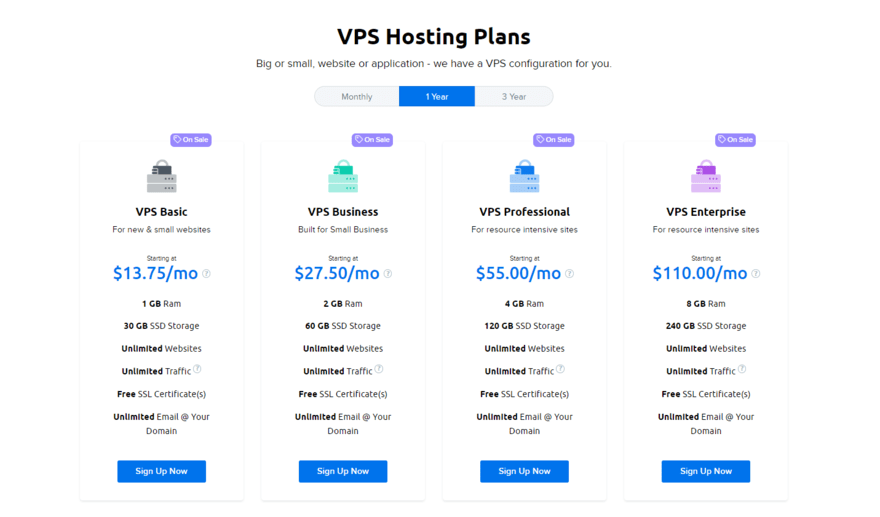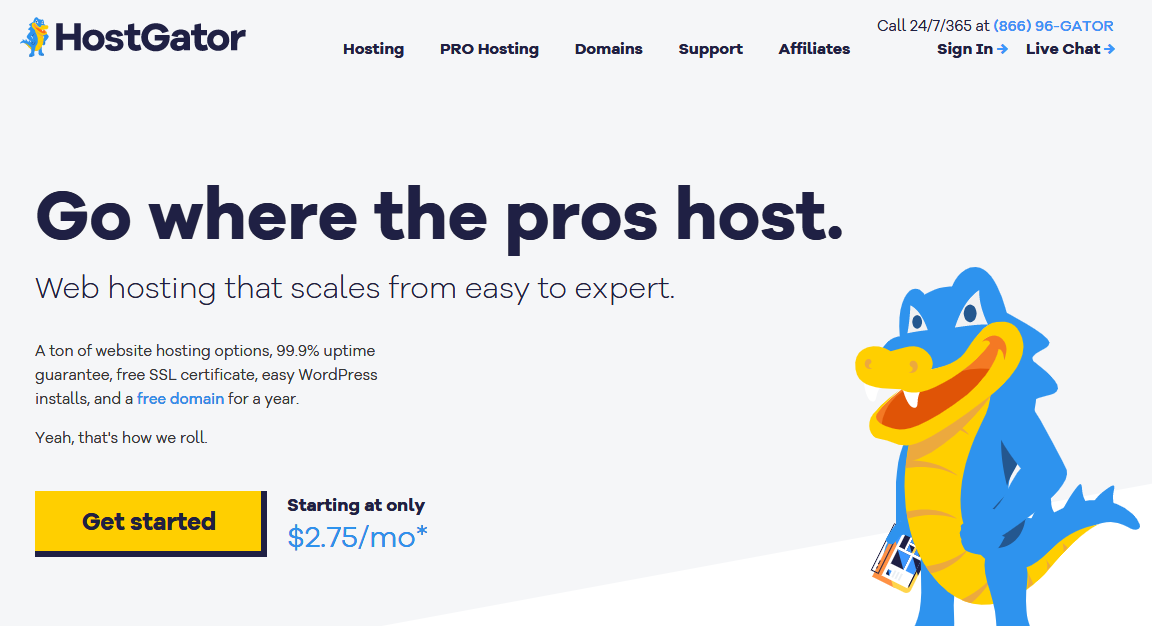AWS Cloud Hosting takes center stage as a powerful and versatile solution for businesses of all sizes. This comprehensive guide explores the benefits, services, and strategies for leveraging AWS to build, deploy, and manage web applications with efficiency and scalability.
AWS, a leading cloud computing platform, offers a wide array of services designed to simplify and enhance the hosting experience. From virtual servers and storage solutions to database management and content delivery networks, AWS empowers developers and businesses to create robust and reliable online presences.
Introduction to AWS Cloud Hosting
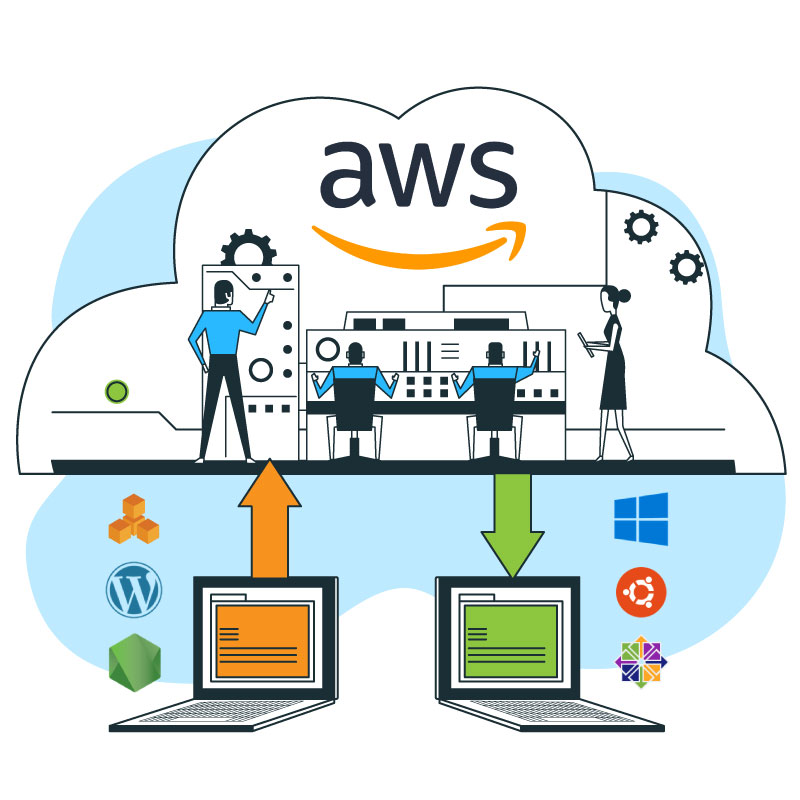
In today’s digital world, businesses of all sizes are increasingly relying on cloud computing to power their operations. Cloud hosting offers a flexible and scalable solution for managing applications, data, and infrastructure, eliminating the need for on-premises servers and their associated costs. Among the leading cloud providers, Amazon Web Services (AWS) stands out as a comprehensive and robust platform, offering a wide range of services to meet diverse business needs.
This guide will delve into the fundamentals of AWS cloud hosting, exploring its advantages, services, and how it can empower your business to achieve its goals.
Understanding Cloud Hosting
Cloud hosting is a model of computing where resources, such as servers, storage, and software, are delivered over the internet, rather than being physically located on-premises. Instead of investing in and maintaining physical infrastructure, businesses can access these resources from a network of data centers owned and operated by a third-party provider. This approach offers several key benefits:
- Cost-Effectiveness: Cloud hosting eliminates the need for upfront capital expenditure on hardware, software, and infrastructure. Businesses only pay for the resources they use, leading to significant cost savings, especially for startups and small businesses with limited budgets.
- Scalability and Flexibility: Cloud resources can be easily scaled up or down based on changing business demands. This dynamic allocation of resources allows businesses to adapt quickly to fluctuating workloads, ensuring optimal performance and avoiding over-provisioning.
- Reliability and Availability: Cloud providers maintain redundant infrastructure and advanced security measures to ensure high availability and data redundancy. This minimizes downtime and ensures business continuity even in the event of hardware failures or natural disasters.
- Global Reach: Cloud services are accessible from anywhere in the world, enabling businesses to expand their reach and serve customers globally without the need for physical presence in different locations.
AWS: A Comprehensive Cloud Platform
AWS, a subsidiary of Amazon, is the world’s leading cloud platform, offering a wide range of services to support various business functions. Its comprehensive suite of services includes:
- Compute Services: EC2 (Elastic Compute Cloud) provides virtual servers (instances) for running applications, while Lambda offers serverless computing for event-driven applications.
- Storage Services: S3 (Simple Storage Service) provides object storage for data backup, archiving, and content delivery, while EBS (Elastic Block Storage) offers persistent block storage for EC2 instances.
- Database Services: RDS (Relational Database Service) provides managed relational databases, while DynamoDB offers a fully managed NoSQL database service.
- Networking Services: VPC (Virtual Private Cloud) allows businesses to create isolated and secure virtual networks, while Route 53 provides a DNS service for managing domain names and routing traffic.
- Security Services: AWS offers a comprehensive set of security services, including IAM (Identity and Access Management) for user authentication and authorization, and KMS (Key Management Service) for managing encryption keys.
Advantages of Using AWS for Cloud Hosting
AWS offers numerous advantages for businesses looking to adopt cloud hosting:
- Wide Range of Services: AWS provides a vast ecosystem of services, catering to various business needs, from application development and deployment to data analytics and machine learning.
- Global Infrastructure: AWS has a global network of data centers, ensuring low latency and high availability for applications and services.
- Security and Compliance: AWS adheres to industry-leading security standards and offers a range of compliance certifications, ensuring data protection and regulatory compliance.
- Cost Optimization: AWS provides flexible pricing models, allowing businesses to optimize costs based on their usage patterns and resource requirements.
- Innovation and Growth: AWS constantly invests in research and development, introducing new services and features to support business innovation and growth.
AWS Services for Hosting
AWS provides a comprehensive suite of services designed for hosting applications and websites. These services cater to diverse needs, from simple static websites to complex, scalable applications.
Amazon Elastic Compute Cloud (EC2)
EC2 is a fundamental service for hosting applications on AWS. It offers virtual machines (VMs) that can be customized and configured to meet specific application requirements. EC2 instances provide a controlled environment for running applications and can be scaled up or down based on demand.
Amazon Simple Storage Service (S3)
S3 is a highly scalable and durable object storage service. It is ideal for storing static content like images, videos, and files. S3 provides a cost-effective and reliable solution for storing and retrieving data, making it a key component for hosting websites and web applications.
Amazon Elastic Block Store (EBS)
EBS provides persistent block storage volumes that can be attached to EC2 instances. These volumes act as hard drives for EC2 instances, enabling the storage of data that persists even when the instance is stopped or restarted. EBS volumes offer high performance and reliability, making them suitable for applications that require persistent data storage.
Amazon Route 53
Route 53 is a highly reliable and scalable DNS service. It allows you to manage your domain names and route traffic to your applications and services hosted on AWS. Route 53 provides features like health checks, failover, and load balancing, ensuring high availability and resilience for your web applications.
Comparison of AWS Services
| Service | Features | Use Cases |
|---|---|---|
| EC2 | Virtual machines, scalable, customizable, managed by AWS | Hosting web applications, running databases, deploying complex applications |
| S3 | Object storage, highly scalable, durable, cost-effective | Storing static content (images, videos, files), hosting websites, data backups |
| EBS | Persistent block storage, high performance, reliable, attached to EC2 instances | Storing data for applications that require persistent storage, databases, application state |
| Route 53 | DNS service, highly reliable, scalable, features health checks, failover, load balancing | Managing domain names, routing traffic to applications, ensuring high availability |
Building and Deploying Web Applications
AWS services can be combined to build and deploy web applications. For example, a web application can be hosted on an EC2 instance, with the application’s static content stored on S3. Route 53 can be used to manage the domain name and route traffic to the EC2 instance. EBS volumes can be used to store persistent data for the application.
Choosing the Right AWS Hosting Solution
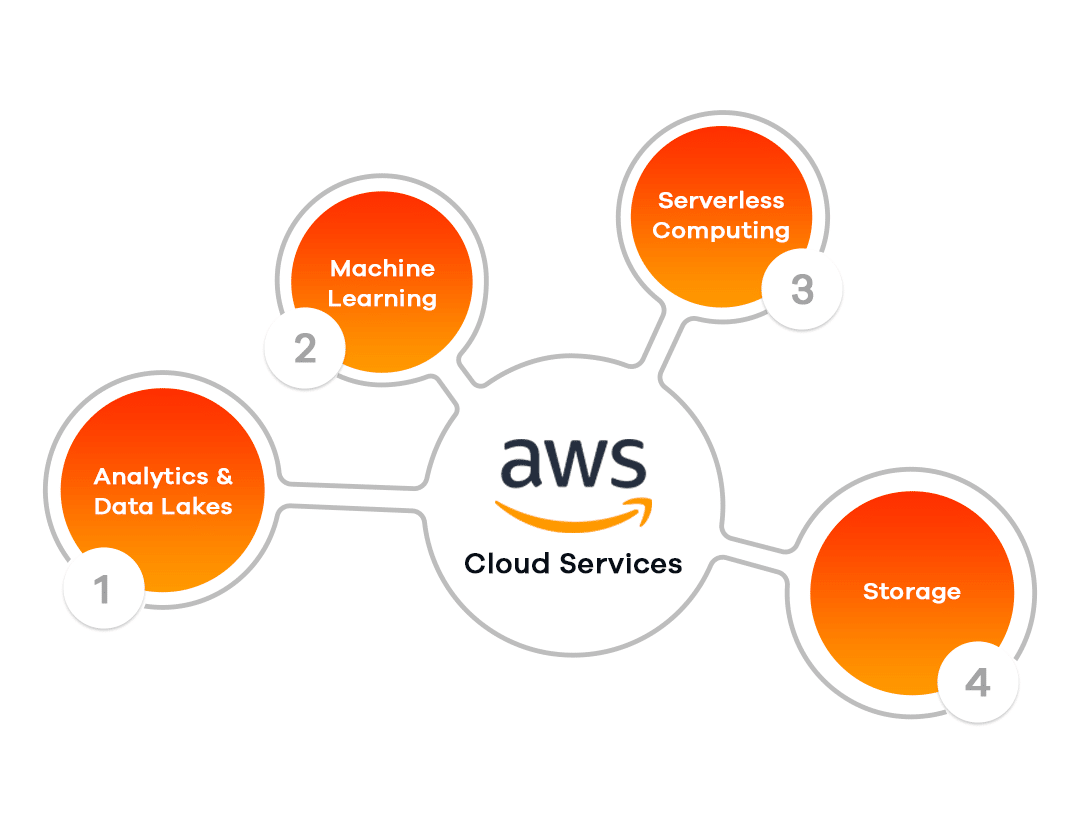
Choosing the right AWS hosting solution is crucial for optimizing your website or application’s performance, scalability, and cost-effectiveness. To make an informed decision, you need to consider several factors, including your application requirements, budget, and scalability needs.
Understanding Different AWS Hosting Options
AWS offers a wide range of hosting solutions, each designed to meet specific needs. Here’s a breakdown of some key options:
- EC2 Instances: EC2 (Elastic Compute Cloud) instances provide virtual servers that you can customize with operating systems and software. They offer flexibility and control, making them suitable for applications with diverse requirements.
- AWS Lambda: AWS Lambda is a serverless computing service that allows you to run code without managing servers. You only pay for the compute time consumed, making it cost-effective for event-driven applications and microservices.
- Serverless Computing: Serverless computing encompasses services like AWS Lambda and other managed services that abstract away the complexities of server management. This approach focuses on code execution, allowing you to concentrate on application logic rather than infrastructure.
Factors to Consider When Choosing an AWS Hosting Solution
Here are some crucial factors to consider when selecting an AWS hosting solution:
- Application Requirements: Analyze the specific needs of your application, including processing power, memory, storage, and network bandwidth.
- Budget: Establish a budget for your hosting solution and explore different pricing models offered by AWS.
- Scalability: Determine your scalability needs. Will your application require the ability to handle fluctuating traffic or handle sudden spikes in demand?
- Security: Assess your security requirements and choose a solution that offers appropriate security features and compliance certifications.
Choosing the Right Service for Different Website and Application Types
Here’s a guide for selecting the appropriate AWS service for various website and application types:
- Static Websites: For static websites that primarily serve content like HTML, CSS, and JavaScript, Amazon S3 (Simple Storage Service) is a cost-effective option.
- Dynamic Websites and Applications: For websites and applications that require database interaction, server-side logic, and dynamic content generation, EC2 instances are a suitable choice.
- Event-Driven Applications: For applications triggered by events, such as user actions or data changes, AWS Lambda is an excellent choice.
- Microservices Architectures: Microservices architectures benefit from serverless computing, allowing you to deploy and scale individual services independently.
Deploying and Managing Applications on AWS
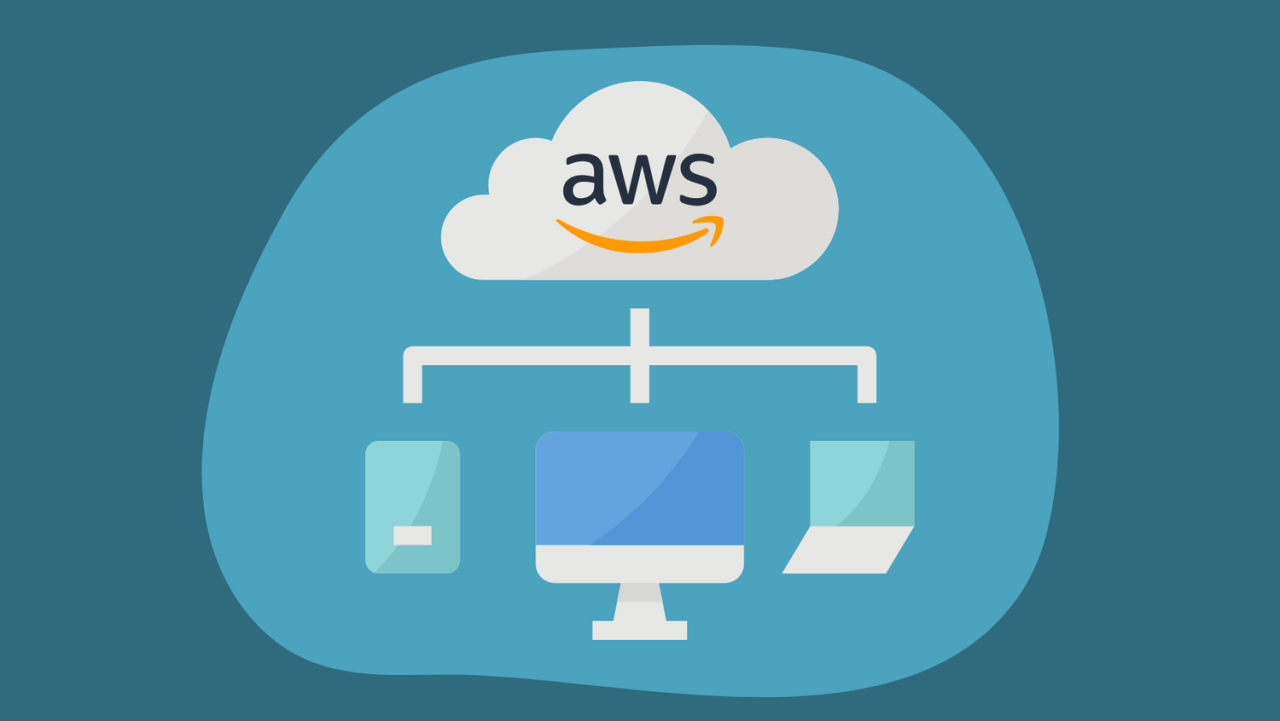
Deploying and managing applications on AWS involves leveraging a range of tools and services to ensure seamless operation, scalability, and security. This section delves into the key aspects of this process, encompassing deployment strategies, security configurations, and performance monitoring.
Deploying Web Applications on AWS
Deploying web applications on AWS offers a flexible and scalable approach. AWS provides various tools and services tailored for different deployment needs, enabling developers to choose the best fit for their application.
- AWS Elastic Beanstalk: A fully managed platform-as-a-service (PaaS) that simplifies the deployment and management of web applications. It automates tasks such as provisioning infrastructure, load balancing, and scaling, allowing developers to focus on their code.
- AWS CodeDeploy: A service that automates application deployments to Amazon EC2 instances, on-premises servers, or AWS Lambda functions. It enables continuous delivery, ensuring consistent and reliable deployments across different environments.
- AWS CloudFormation: A service that allows users to define and provision AWS resources using infrastructure-as-code (IaC). It provides a declarative way to specify the desired state of the infrastructure, ensuring consistency and reproducibility across deployments.
Configuring Security and Access Control
Security is paramount in cloud environments. AWS offers comprehensive security features to protect applications and data.
- AWS Identity and Access Management (IAM): A service that enables users to manage access to AWS resources. IAM allows you to define policies that grant or restrict permissions based on user roles, groups, and policies.
- AWS Security Groups: Virtual firewalls that control inbound and outbound traffic to EC2 instances. Security groups act as a layer of defense, filtering network traffic based on rules defined by the user.
- AWS Key Management Service (KMS): A service that enables users to manage and control cryptographic keys. KMS helps protect sensitive data by providing encryption and decryption services.
Monitoring and Managing Application Performance
Monitoring application performance is crucial for identifying and resolving issues proactively. AWS offers a suite of tools for monitoring and managing application performance.
- Amazon CloudWatch: A monitoring and observability service that collects and analyzes metrics, logs, and events from AWS resources. CloudWatch provides dashboards, alerts, and insights into application performance.
- AWS X-Ray: A service that helps developers analyze and debug application performance issues. X-Ray provides a visual representation of application requests, identifying bottlenecks and performance issues.
- AWS CodeGuru Profiler: A service that helps identify performance bottlenecks in Java and Python applications. CodeGuru Profiler analyzes application code and provides recommendations for optimization.
Scaling and High Availability
In the dynamic world of online applications, ensuring seamless user experiences and uninterrupted service delivery is paramount. This is where the concepts of scalability and high availability come into play. Scalability refers to the ability of a system to handle increasing workloads and user demands without compromising performance, while high availability guarantees continuous uptime, minimizing downtime and disruptions.
AWS Services for Scalability and High Availability, Aws cloud hosting
AWS provides a comprehensive suite of services designed to empower developers and businesses to build highly scalable and resilient applications. Two prominent services, Auto Scaling and Elastic Load Balancing, play pivotal roles in achieving these goals.
Auto Scaling
Auto Scaling is a managed service that automatically adjusts the capacity of your application based on real-time demand. It allows you to define scaling policies that trigger the addition or removal of instances based on metrics like CPU utilization, memory usage, or network traffic.
For instance, if your application experiences a sudden surge in traffic, Auto Scaling can automatically launch additional instances to handle the increased load, ensuring smooth performance and preventing service disruptions.
Elastic Load Balancing
Elastic Load Balancing distributes incoming traffic across multiple instances of your application, ensuring that no single instance is overwhelmed and providing fault tolerance. It acts as a traffic manager, directing requests to available instances, and automatically routing traffic away from unhealthy instances.
Imagine a scenario where one of your application instances encounters a failure. Elastic Load Balancing seamlessly reroutes traffic to the remaining healthy instances, maintaining application availability and minimizing user impact.
Designing for Scalability and High Availability on AWS
Designing applications with scalability and high availability in mind is crucial for success in the cloud. Here are some key considerations:
Stateless Applications
Building stateless applications, where each request is independent and does not rely on previous requests or data stored on a specific instance, simplifies scaling and ensures resilience.
For example, a web application that processes user requests independently, without storing session data on individual instances, can be easily scaled by adding or removing instances without affecting application state.
Horizontal Scaling
Leveraging horizontal scaling, where you add more instances to handle increased load, is a common approach in cloud environments. AWS services like EC2 and Auto Scaling facilitate horizontal scaling by allowing you to easily provision and manage multiple instances.
Consider a web application that experiences a peak in traffic during promotional events. By implementing horizontal scaling, you can automatically add more instances to handle the increased load, ensuring smooth performance and a positive user experience.
Database Optimization
Optimizing your database for scalability and high availability is crucial. AWS offers various database services, including Amazon Aurora and Amazon RDS, that provide built-in features for scalability and high availability.
For example, Amazon Aurora, a fully managed MySQL-compatible database service, offers automatic failover and read replicas, ensuring data availability and performance even in the event of a failure.
Monitoring and Logging
Implementing robust monitoring and logging solutions is essential for understanding application performance and identifying potential issues. AWS services like CloudWatch and Amazon CloudTrail provide comprehensive monitoring and logging capabilities, allowing you to track metrics, identify anomalies, and troubleshoot issues proactively.
For instance, CloudWatch can monitor your application’s performance metrics, such as CPU utilization, memory usage, and network traffic, alerting you to potential bottlenecks or performance issues.
Cost Optimization and Management
AWS offers a vast array of services, and optimizing costs is crucial to ensure your cloud hosting remains efficient and affordable. This section delves into strategies, tools, and best practices for effectively managing your AWS expenses.
Strategies for Optimizing Costs
Cost optimization is a continuous process, requiring a proactive approach. Here are key strategies to reduce your AWS bill:
- Right-sizing instances: Select the instance type that best aligns with your application’s requirements. Overprovisioning leads to unnecessary costs. Use tools like AWS EC2 Instance Advisor to analyze your usage patterns and suggest suitable instance sizes.
- Leverage Spot Instances: These instances offer significant cost savings, but are subject to interruption. They are ideal for non-critical workloads that can tolerate occasional downtime. Spot instances are a great way to reduce costs for batch processing, testing, and development environments.
- Utilize Reserved Instances: For predictable workloads, consider reserving instances for a year or three years. This commitment secures a discounted price, potentially saving you a substantial amount over on-demand pricing.
- Optimize Storage: Choose the appropriate storage service based on your data access patterns and requirements. For frequently accessed data, use SSD-based storage. For infrequently accessed data, consider Glacier or S3 Standard-IA.
- Automate Resource Management: Implement automation to automatically start and stop instances based on usage patterns. Tools like AWS Lambda and CloudWatch Events can help you automate resource management tasks.
AWS Cost Management Tools and Services
AWS provides a comprehensive suite of tools and services to help you track, analyze, and control your cloud spending.
- AWS Cost Explorer: This service provides a detailed breakdown of your AWS costs, allowing you to analyze trends, identify cost drivers, and make informed decisions. You can filter data by service, region, and time period to gain insights into your spending patterns.
- AWS Budgets: Set budget alerts to notify you when your spending reaches specific thresholds. This proactive approach helps you avoid unexpected cost overruns.
- AWS Cost and Usage Report: This report provides a detailed breakdown of your AWS usage and costs, allowing you to analyze your spending patterns and identify areas for optimization.
- AWS Trusted Advisor: This service provides personalized recommendations for optimizing your AWS resources, including cost savings opportunities. Trusted Advisor analyzes your environment and suggests actions to improve efficiency and reduce costs.
Best Practices for Minimizing Costs
Adopting best practices can significantly impact your AWS bill.
- Use Serverless Computing: For event-driven applications, serverless computing services like AWS Lambda can reduce operational overhead and costs. Lambda functions are billed only when they execute, eliminating the need to pay for idle resources.
- Utilize Elastic Load Balancing: Distribute traffic across multiple instances, ensuring high availability and efficient resource utilization. This helps you avoid overprovisioning and reduces the risk of performance bottlenecks.
- Optimize Database Performance: Choose the appropriate database service for your needs, and optimize database configurations to ensure efficient resource utilization. Use database monitoring tools to identify and address performance issues.
- Implement Security Best Practices: Security breaches can lead to significant costs. Implement robust security measures to protect your data and resources, minimizing the risk of data loss and downtime.
Security Considerations
The cloud, while offering numerous benefits, also presents unique security challenges. Understanding these threats and implementing appropriate safeguards is crucial for protecting your data and applications hosted on AWS.
Common Security Threats in Cloud Hosting
Cloud environments are susceptible to various security threats. It’s essential to understand these threats and implement proactive measures to mitigate risks.
- Data Breaches: Unauthorized access to sensitive data stored in the cloud can lead to significant financial and reputational damage. This can occur through various methods, such as exploiting vulnerabilities in applications, compromising user credentials, or gaining access to cloud storage services.
- Denial-of-Service (DoS) Attacks: These attacks aim to disrupt the availability of your cloud services by overwhelming them with traffic, making them inaccessible to legitimate users. This can cripple your business operations and lead to financial losses.
- Malware Infections: Malicious software can infect cloud infrastructure, steal data, or disrupt services. This can occur through compromised applications, vulnerable cloud services, or phishing attacks targeting users.
- Misconfigurations: Incorrect configurations of cloud services or security settings can create vulnerabilities that attackers can exploit. For example, exposing sensitive data without proper encryption or granting excessive permissions to users can lead to security breaches.
- Insider Threats: Even trusted employees can pose security risks. Accidental or intentional actions by employees can compromise data or systems, emphasizing the need for robust access control and monitoring.
AWS Security Features and Services
AWS offers a comprehensive suite of security features and services designed to protect your data and applications in the cloud.
- Identity and Access Management (IAM): IAM allows you to control access to AWS resources by defining users, groups, and permissions. This ensures that only authorized individuals can access sensitive data and services.
- Amazon Virtual Private Cloud (Amazon VPC): VPC enables you to create a private network within AWS, isolating your resources from the public internet. This enhances security by controlling access to your applications and data.
- Amazon GuardDuty: GuardDuty is a threat detection service that continuously monitors your AWS environment for malicious activity, such as unauthorized access, data exfiltration, and account compromise.
- Amazon Inspector: Inspector automatically assesses the security vulnerabilities of your applications and infrastructure, providing actionable insights to improve your security posture.
- Amazon Macie: Macie is a data security service that helps you discover, classify, and protect sensitive data stored in Amazon S3. It identifies potential threats and vulnerabilities related to data security.
- AWS Key Management Service (KMS): KMS provides a managed service for creating and managing encryption keys, ensuring the confidentiality and integrity of your data at rest and in transit.
Implementing Security Best Practices in AWS
To ensure the security of your AWS environment, it’s crucial to implement best practices throughout the entire lifecycle of your applications and infrastructure.
- Least Privilege Principle: Grant users only the minimum permissions required to perform their tasks. This reduces the potential impact of compromised accounts.
- Multi-Factor Authentication (MFA): Enable MFA for all user accounts to add an extra layer of security by requiring users to provide multiple forms of authentication, such as a password and a one-time code.
- Regular Security Audits: Conduct regular security audits to identify and address vulnerabilities in your AWS environment. This includes reviewing IAM policies, network configurations, and application security.
- Encryption: Encrypt sensitive data both at rest and in transit to protect it from unauthorized access. AWS KMS can be used for this purpose.
- Security Monitoring: Implement robust security monitoring tools to detect and respond to potential threats in real-time. This includes using AWS CloudTrail for logging API calls and AWS CloudWatch for monitoring security events.
- Security Patching: Keep all software and operating systems up to date with the latest security patches to mitigate known vulnerabilities.
- Data Backup and Recovery: Regularly back up your data and ensure you have a disaster recovery plan in place. This will help you recover from data loss or system failures.
AWS Cloud Hosting Use Cases
AWS, a leading cloud platform, offers a wide range of services for hosting applications and workloads. Its versatility makes it suitable for various industries and business needs, enabling businesses to leverage the cloud for scalability, cost optimization, and innovation.
E-commerce and Retail
E-commerce businesses heavily rely on reliable and scalable hosting solutions to handle fluctuating traffic, especially during peak seasons like holidays or sales events. AWS provides the necessary infrastructure to accommodate these demands, ensuring seamless customer experiences.
- Scalability: AWS’s elastic computing resources allow e-commerce businesses to scale their infrastructure up or down based on real-time traffic demands, preventing performance issues during peak shopping periods.
- High Availability: AWS offers redundant services and geographically dispersed data centers, ensuring continuous website availability even in case of outages or disasters. This minimizes downtime and ensures customer satisfaction.
- Security: AWS provides robust security features, including data encryption, access control, and threat detection, safeguarding sensitive customer information and ensuring compliance with industry regulations.
Media and Entertainment
The media and entertainment industry requires high bandwidth and storage capacity for streaming services, content delivery, and data management. AWS provides a comprehensive suite of services to cater to these needs.
- Content Delivery Network (CDN): AWS’s CDN services like CloudFront deliver content to users worldwide with low latency, ensuring a smooth streaming experience.
- Storage Solutions: AWS offers various storage options, including S3 for object storage, EBS for block storage, and EFS for file storage, enabling efficient management of media assets.
- Media Processing: AWS services like Elastic Transcoder and MediaConvert allow businesses to process and transcode media files for different devices and formats, optimizing content delivery.
Financial Services
Financial institutions need secure and reliable hosting solutions to handle sensitive customer data, transactions, and regulatory compliance. AWS provides a secure and compliant platform for financial services.
- Data Security: AWS offers robust security features, including data encryption, access control, and compliance certifications, ensuring the protection of sensitive financial data.
- Compliance: AWS adheres to industry standards like PCI DSS, HIPAA, and GDPR, enabling financial institutions to meet regulatory requirements.
- Disaster Recovery: AWS provides disaster recovery solutions, ensuring business continuity in case of unforeseen events, protecting critical financial systems and data.
Healthcare
The healthcare industry requires secure and compliant hosting solutions for electronic health records (EHRs), patient data, and medical imaging. AWS provides a secure and compliant platform for healthcare organizations.
- Data Security: AWS offers robust security features, including data encryption, access control, and compliance certifications, ensuring the protection of sensitive patient data.
- Compliance: AWS adheres to industry standards like HIPAA, ensuring compliance with healthcare regulations.
- Data Analytics: AWS services like Amazon Athena and Redshift enable healthcare organizations to analyze patient data, identify trends, and improve patient care.
Future Trends in AWS Cloud Hosting
The AWS cloud hosting landscape is constantly evolving, driven by advancements in technology and changing user demands. Understanding these trends is crucial for businesses to leverage the full potential of AWS and optimize their cloud strategies.
The Rise of Serverless Computing
Serverless computing is gaining immense popularity, allowing developers to focus on building applications without managing servers. AWS Lambda, a serverless compute service, enables developers to run code without provisioning or managing servers. This approach offers significant benefits, including:
- Reduced Operational Overhead: Serverless computing eliminates the need for server management, allowing developers to focus on application logic.
- Scalability and Elasticity: AWS automatically scales resources based on demand, ensuring optimal performance and cost efficiency.
- Pay-as-you-go Pricing: Users pay only for the resources they consume, making it cost-effective for applications with fluctuating workloads.
Serverless computing is expected to play a pivotal role in the future of AWS cloud hosting, enabling businesses to build and deploy applications with greater agility and efficiency.
The Impact of Artificial Intelligence and Machine Learning
AI and ML are transforming various industries, and AWS is at the forefront of this revolution. AWS offers a comprehensive suite of AI and ML services, including Amazon SageMaker, Amazon Rekognition, and Amazon Comprehend. These services empower businesses to:
- Automate Tasks: AI-powered automation can streamline processes, reduce manual effort, and improve efficiency.
- Gain Insights from Data: ML algorithms can analyze vast datasets to identify patterns, trends, and anomalies, providing valuable insights for decision-making.
- Enhance Customer Experiences: AI can personalize customer interactions, provide tailored recommendations, and improve overall satisfaction.
The integration of AI and ML into AWS cloud hosting solutions will enhance application performance, optimize resource utilization, and provide businesses with a competitive edge.
The Evolution of Edge Computing
Edge computing brings computation and data storage closer to users, reducing latency and improving performance for applications that require real-time responses. AWS Wavelength, a service that extends AWS compute and storage to the edge, enables businesses to:
- Improve Application Response Times: By processing data closer to users, edge computing reduces latency and enhances user experience.
- Enable Real-Time Analytics: Edge computing facilitates real-time data processing, enabling businesses to gain insights and make timely decisions.
- Support Connected Devices: Edge computing is crucial for supporting the growing number of connected devices in the Internet of Things (IoT) ecosystem.
Edge computing is expected to become increasingly important in the future of AWS cloud hosting, enabling businesses to deliver low-latency applications and services to users worldwide.
Last Word: Aws Cloud Hosting
In conclusion, AWS Cloud Hosting presents a dynamic and adaptable solution for modern web applications. By understanding the key services, choosing the right hosting solution, and implementing best practices for security, cost optimization, and scalability, businesses can harness the power of AWS to achieve their online goals. As cloud technology continues to evolve, AWS remains at the forefront, offering a future-proof platform for innovation and growth.
AWS cloud hosting offers a flexible and scalable platform for running your applications. If you’re looking for a reliable database solution, you might consider using SQL Server 2019 Express which can be easily deployed and managed within the AWS environment.
This combination provides a cost-effective and efficient way to manage your data needs, ensuring your applications run smoothly and reliably.

